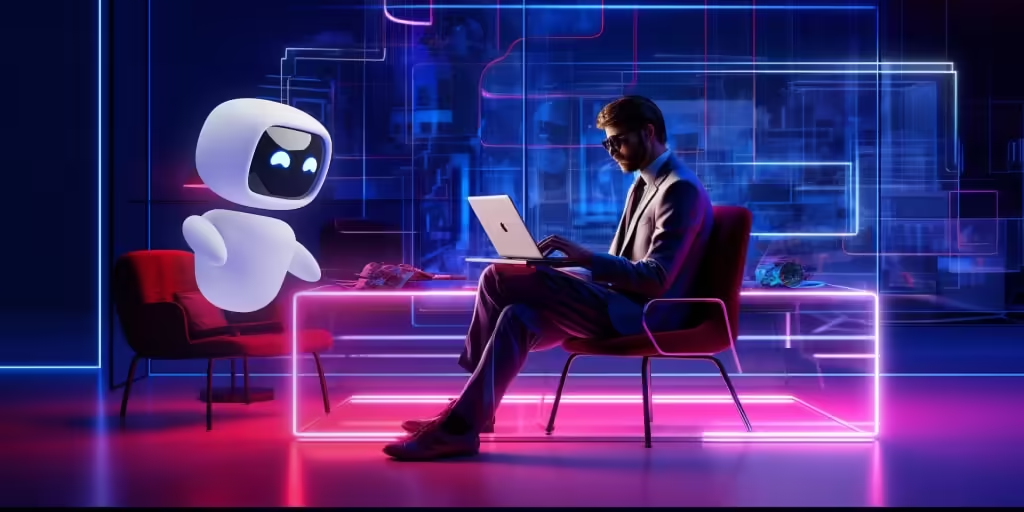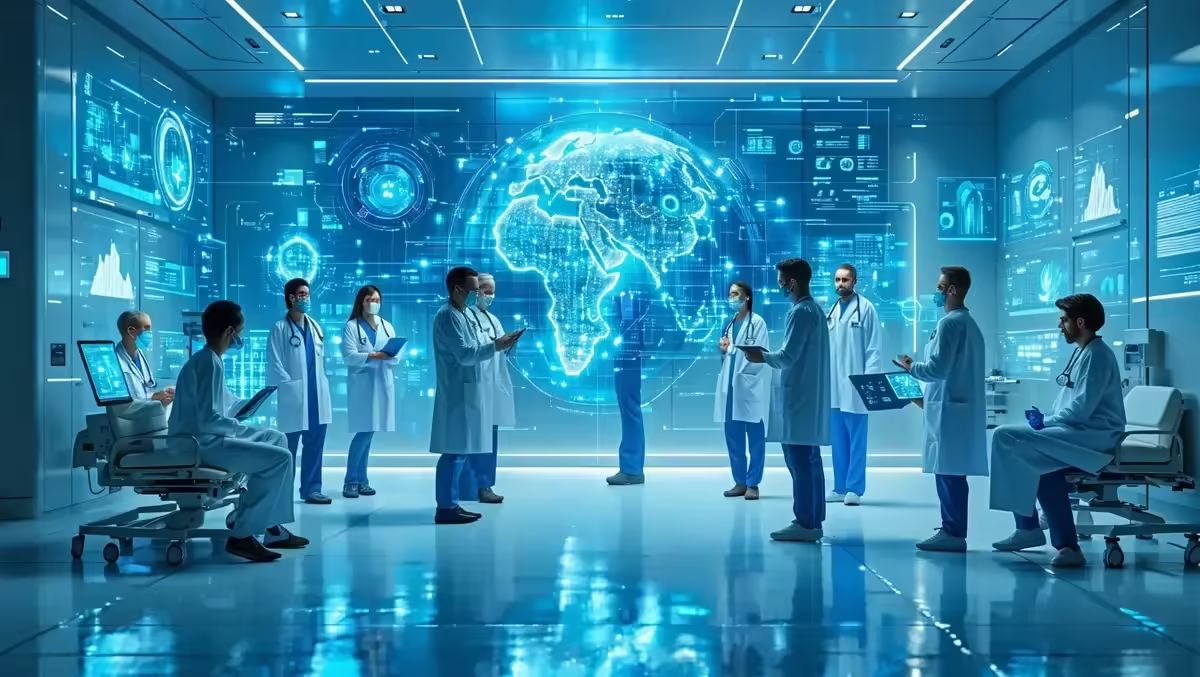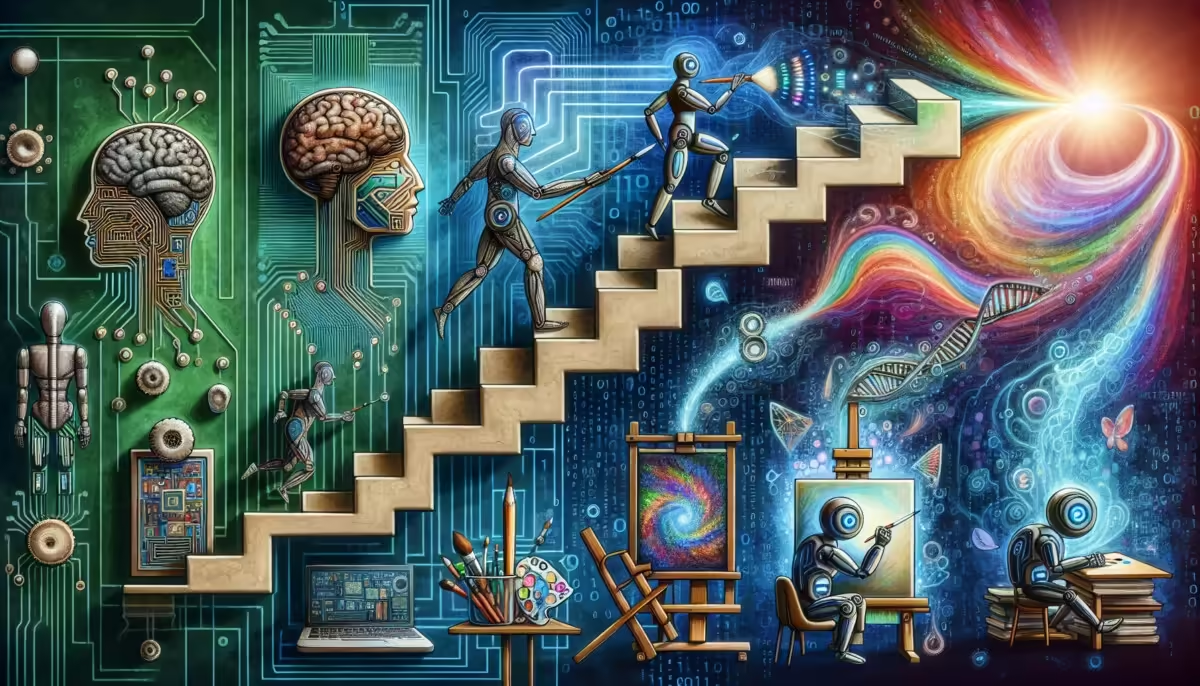How AI is Reshaping the Future: Trends to Watch 2025
Artificial Intelligence (AI) is no longer just a futuristic idea; AI is the science of making machines now a force that is rapidly redefining our future. AI in 2025 will be evolving at a never-before-seen rate, impacting every aspect of our lives, from how we work to how we communicate, make better decisions and experience the world. This blog explores the key development to look out for AI trends in 2025 as well as how AI is changing the future.
1. AI Revolution
Science fiction is no longer the only genre that uses Artificial Intelligence. AI technologies are now incorporated into many aspects of life from computer vision and robotics to machine learning or machine vision and natural language processing. AI is reshaping jobs, AI changing industries, governments and people alike. With smarter, effective and moral applications setting the standard, 2025 marks a turning point in this revolution.
Chatbots are one of the uses of AI technologies. Chatbots are the virtual assistance for consumers whether you want Alexa to play your favourite song or Siri to make a phone call.
2. AI in Workplace

The workforce is undoubtedly reshaping as a result of AI. The entry level tech and customer service positions are being automated and new roles are created in AI training, auditing and prompt engineering.
AI is predicted to automate more repetitive and routine tasks in 2025 across a variety of industries including manufacturing, logistics, finance and customer service. Beyond automation however, AI is enhancing human potential. AI powered tools are helping professionals in making better, quicker decisions.
AI powered AI algorithms for hiring and HR are now being used to screen, evaluate soft skills in virtual interview, and lessen being biassed during the hiring process. AI tools are helping HR in making fairer decisions and HR chatbots are handling routine queries.
A hybrid workforce of intelligent machines and humans is emerging as AI replaces menial tasks. AI manages data- intensive tasks while humans concentrate on strategic and creative work. Nowadays, a lot of workers quietly use AI in the background but the question of transparency and ethics are being raised.
3. AI in Healthcare

With algorithms that can identify diseases like cancer, Alzheimer’s and heart conditions more quickly and accurately than ever before, Artificial Intelligence is revolutionizing diagnosis. Imaging tools powered by AI are becoming standard practice.
AI is making it possible to create personalized treatment programmes based on medical history, lifestyle, and genetic information. Personalized medicine is lowering adverse drug reactions and improving patient outcomes.
AI powered virtual assistants are increasing patient engagement by answering questions about health, reminding patients to take their medication on time, and setting up appointments.
4. AI in Education
In 2025, AI- driven platforms will be able to modify content according to each student’s performance, learning style, and speed. Real time feedback and guidance are provided by the Intelligent tutoring system.
The work of human educators is being supplemented by chatbots and AI instructors. They are accessible 24/7 to help in clarifying concepts, practice exercises and assist in language learning.
By automating processes like curriculum management, attendance tracking, and grading. Enhanced administration AI is simplifying educational administration and freeing up teachers to concentrate more on students’ interaction.
Artificial intelligence also helps students improve their skill by deep learning in various fields through different AI tools and mechanisms and make them future ready. Student of this new generation prefer learning skill through AI rather than traditional learning method.
5. AI in Creative Industries

These days AI tools can create videos, write articles, and compose music. Despite the controversy these tools are speeding production and fostering human creativity. Real time visualization and creative ideas are being generated by AI- assisted platforms for engineers, architects, and artists. AI is being used by filmmakers for post production story boarding and also script writing. AI is being used by authors to translate languages or co- write novels. AI in website design takes the art of the labour out.
Concerns about intellectual property, authenticity and creative ownership are growing as AI makes it harder to blur the line between human and machine generated content.
6. AI and Consumer Experience
AI is changing how companies interact with their customers. Real time customer insights, AI powered suggestions, and hyper- personalised advertisements are increasing engagement and conversions.
Instead of just browsing images of products online, AI actually helps people experience products in realty before you buy them. For example, IKEA, a Swedish brand. They launched an App based on Automated Reality (AR) to enable customers to visualise their products in their comfort zone.
Everyday life is becoming more convenient thanks to AI assistants like Alexa, Siri, and Google Assistant that are growing more proactive, conversational, and context- aware.
AI is making online shopping a smooth, intelligent experience with features like automated customer service and virtual try-ons. Retail and E-commerce brands use AI tools to track their customer preference, customer habits and their buying behaviour. E-commerce platforms like Amazon uses AI – powered recommendation engines to effectively provide personised suggestions.
AI Gives Competitive Advantages
AI enhances user experience and increases marketing efficiency by helping you in better understanding of your customer. AI helps you in boosting your output and in increasing the ROI (Return on Interest). Better decision making can be done through using AI as a tool. AI helps in better understanding of customer behaviour / patterns so that marketing can be made in a better manner.
AI and Global Security
AI is now both a sword and a shield due to the increasing sophistication of cyber threats. AI can spot odd patterns and flag possible breaches more quickly than traditional systems and improves threat detection. Utilizing behavioural analysis to detect threats in real time. The potential for generative AI to be misused in creating convincing deepfakes increases with its advancement. To identify and lessen this risk, counter AI tools are being developed.
Traditional manual monitoring is nearly disused due to the speed, intelligence and adaptability of AI- driven security system
Closing In!
AI is creating the future, not just forecasting it. To ensure that AI benefits all of humanity as we navigate 2025 and beyond, it will be crucial to embrace its potential while reducing its risk. AI is not only changing the future it is becoming the future, changing everything from industries to people’s lives.
But with great power also carries great responsibility.
AI is reshaping how we work, create, evolve, and live in 2025.the current trends are not fleeting: rather they serve as the foundation of the upcoming 10 years of human advancement.